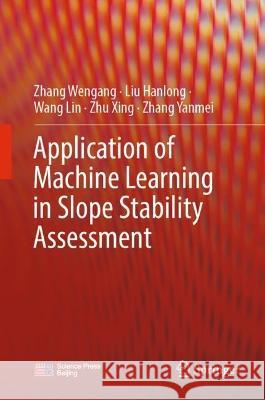Application of Machine Learning in Slope Stability Assessment » książka
topmenu
Application of Machine Learning in Slope Stability Assessment
ISBN-13: 9789819927555 / Angielski / Twarda / 2023
Application of Machine Learning in Slope Stability Assessment
ISBN-13: 9789819927555 / Angielski / Twarda / 2023
cena 684,33
(netto: 651,74 VAT: 5%)
Najniższa cena z 30 dni: 655,41
(netto: 651,74 VAT: 5%)
Najniższa cena z 30 dni: 655,41
Termin realizacji zamówienia:
ok. 16-18 dni roboczych.
ok. 16-18 dni roboczych.
Darmowa dostawa!
This book focuses on the application of machine learning in slope stability assessment. The contents include: overview of machine learning approaches, the mainstream smart in-situ monitoring techniques, the applications of the main machine learning algorithms, including the supervised learning, unsupervised learning, semi- supervised learning, reinforcement learning, deep learning, ensemble learning, etc., in slope engineering and landslide prevention, introduction of the smart in-situ monitoring and slope stability assessment based on two well-documented case histories, the prediction of slope stability using ensemble learning techniques, the application of Long Short-Term Memory Neural Network and Prophet Algorithm in Slope Displacement Prediction, displacement prediction of Jiuxianping landslide using gated recurrent unit (GRU) networks, seismic stability analysis of slopes subjected to water level changes using gradient boosting algorithms, efficient reliability analysis of slopes in spatially variable soils using XGBoost, efficient time-variant reliability analysis of Bazimen landslide in the Three Gorges Reservoir Area using XGBoost and LightGBM algorithms, as well as the future work recommendation.The authors also provided their own thoughts learnt from these applications as well as work ongoing and future recommendations.











